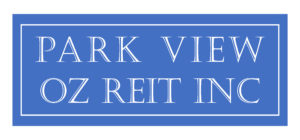1031 exchanges, aka: “like kind exchanges” are a staple of tax-efficient financial planning. For over one hundred years they have allowed investors to defer capital gains indefinitely, with the potential to eliminate capital gains liabilities through a cost basis step up on the death of the taxpayer, making them a very attractive way to build generational wealth. However, the benefits do come with strict rules which can make crafting a tax-efficient portfolio challenging at times. In this blog post we’ll examine how qualified opportunity funds (QOFs) can enhance, and in certain situations replace 1031s.
1. Hiring a qualified intermediary gives taxpayers additional QOF tax planning options.
A unique tax deferral opportunity arises when an investor hires a qualified intermediary (QI) to execute a 1031, but the exchange is only partially completed (boot) or can not be completed. The presence of the QI may allow the taxpayer to receive the original sale proceeds under installment sale rules. This defers the realization date of the capital gain to the date the qualified intermediary releases the funds opening a new 180-day QOF investment eligibility window.
2. How to defer boot.
In a 1031 exchange, the entire proceeds of a sale must be invested into a new property to defer the whole tax liability. When a property is exchanged for a lower-priced property, the difference is taxable and referred to by 1031 practitioners as “boot.” Finding 1031 eligible investments for remainder amounts can be difficult, especially if the boot is less than $100,000. However, a QOF like Park View OZ REIT (Stock Symbol: PVOZ) can accommodate investors with the purchase of just one share of stock. For investors hoping to defer tax liabilities on boot, QOFs can be an excellent option and may be the only practical choice.
3. Capital gain deferral when a 1031 cannot be completed.
The rules for executing a successful 1031 exchange are rigid. Investors cannot take possession of the sale proceeds, so typically, a qualified intermediary is hired to keep the cash segregated. The investor has 45 days to identify the properties they will be exchanging into and 180 days to close on the new property. It is not unusual for a 1031 seller to receive the sale proceeds into their own bank account or to have difficulty finding and closing on a new property in such a short window, any of which would make them ineligible for 1031 tax deferral benefits. Luckily, none of these restrictions apply to QOF investments. This means QOFs are frequently called upon as a backup plan, to defer tax liabilities when a 1031 exchange cannot be completed.
4. Liquidity for high tax basis 1031 investors.
QOFs can be an excellent option for investors selling a high-cost basis property, particularly if they would like to have fewer of their assets encumbered. As an example, if the investor sold a property for 10 million dollars and their cost basis is nine million, to defer the 1 million-dollar capital gain, a 1031 exchange would require the entire 10 million dollars in proceeds to be reinvested. A QOF investment only requires 1 million dollars of the capital gain to be reinvested to defer the entire capital gain liability. Investors using the QOF would be free to use the 9 million dollars in principal as they wish.
5. Alleviating asset concentration risk for 1031 investors.
Because 1031 exchanges require the entire sale proceeds to be reinvested in “like-kind assets,” asset concentration can build up in portfolios over decades. 1031 investors, especially as they approach retirement, often find they have portfolios with poor diversification and high leverage. Investors can avoid this situation by using the QOFs, which only require the capital gains portion of a sale to be reinvested to eliminate the entire capital gains liability. This frees the investor to use the principal portion of their proceeds to diversify their investments, reduce debt, or in any other way they choose.
Both 1031 and QOF tax benefits are important tax mitigation tools, but they work very differently. We are not covering the OZ rules and benefits in this post, but highly recommend visiting our Opportunity Zone 101 page to learn more.
Park View OZ REIT: The Streamlined Approach to QOF Investing
Unique Public Access: Park View OZ REIT is the only Qualified Opportunity Fund with publicly traded shares (trading symbol: PVOZ).
Flexible Entry Options: Begin with as little as one share on the open market or $10,000 through our subscription agreement.
Investment Timeline Freedom: Exit at your discretion without penalty. With no planned 10-year liquidation, maximize potential tax-free growth through 2047.
Simplified Tax Reporting: Avoid the complexity and delays of partnership K-1 tax forms.
Open to All Investors: No accreditation requirements to participate.
Convenient Purchasing Methods: Buy shares through your existing brokerage account or directly via our website’s electronic subscription agreement.
Are you ready to see how QOFs can benefit you?
Materials provided by Park View OZ REIT or our affiliates have been prepared for informational purposes only and are not intended to provide or be relied on for tax, legal, or financial advice. You should consult your own tax and legal advisors before engaging in any transaction.
